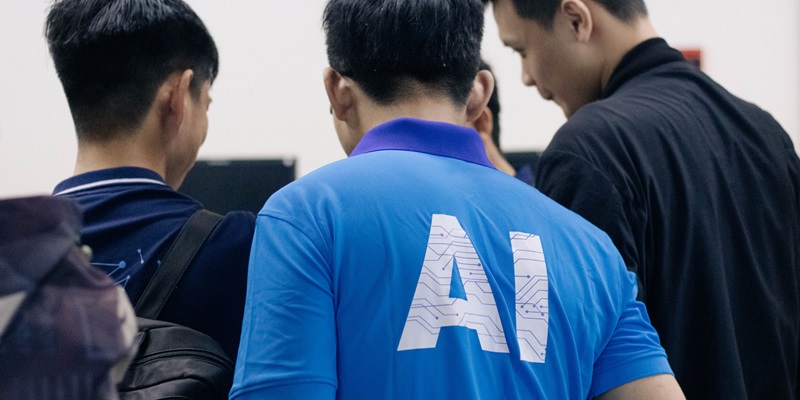The Responsible Artificial Intelligence Institute (RAI Institute) has unveiled a set of tools called the Responsible AI Safety and Effectiveness (RAISE) benchmarks. These benchmarks have been developed to assist organizations in implementing artificial intelligence (AI) in a safe and responsible manner, while also ensuring compliance with rapidly evolving regulatory requirements. With AI rapidly emerging as a game-changer in various industries, it is crucial to establish an AI safety framework. In a recent interview, Manoj Saxena, the founder and executive chairman of the RAI Institute, explained the significance of developing responsible AI practices as the era of Generalized AI (GenAI) dawns.
Overview of the RAISE Benchmarks
The RAISE benchmarks offered by RAI Institute serve as an essential guide in developing AI products that are both safe and effective. By leveraging the benchmarks, companies can navigate the complex landscape of regulatory requirements and proactively address any potential risks associated with AI implementation. This robust framework empowers companies to innovate while maintaining ethical standards and safeguarding against potential harm.
Meeting Changing Regulatory Requirements
Regulations surrounding AI are continually evolving, making it challenging for organizations to stay compliant. The RAISE benchmarks are specifically designed to keep pace with these regulatory changes. By utilizing existing frameworks such as the National Institute of Standards and Technology (NIST) AI framework and cybersecurity standards established by the International Organization for Standardization (ISO), RAI’s tools consolidate the global regulatory ecosystem into a single point of reference. This streamlines the compliance process and ensures responsible AI implementation across international boundaries.
Importance of Developing an AI Safety Framework
Manoj Saxena emphasizes the importance of establishing an AI safety framework as AI technology rapidly comes into prominence. With the convergence of three forces – rapidly advancing technology, evolving regulations, and increased public awareness and scrutiny – the need for a responsible AI ecosystem becomes imperative. Developing comprehensive standards and guidelines will enable organizations to adopt AI technologies with confidence and mitigate any potential risks associated with AI deployment.
Forces Pushing for a Responsible AI Ecosystem
The “three forces” mentioned by Saxena play a pivotal role in driving the development of a responsible AI ecosystem. Technological advancements have accelerated the need for effective safeguards to prevent AI models from “hallucinating” or making inaccurate judgments. Simultaneously, evolving regulatory frameworks demand companies to establish adequate policy benchmarks to ensure ethical AI development. Finally, as public awareness about AI and its impact grows, aligning AI implementations with existing policies and regulations becomes paramount to earn public trust.
Utilizing Existing Regulations and Frameworks
The RAI Institute acknowledges the importance of leveraging existing regulations and frameworks to foster responsible AI adoption. By incorporating esteemed frameworks such as NIST’s AI framework and ISO’s cybersecurity standards, RAI’s tools help organizations navigate complex global regulations more efficiently. This approach not only streamlines compliance but also promotes the universal adoption of ethical AI practices across industries.
Competitive Pressures and AI Adoption
The rapid proliferation of AI adoption is driven by competitive pressures within industries. Organizations are compelled to harness AI’s transformative potential to stay ahead in a highly competitive market landscape. However, in the race to adopt AI technologies, companies should not neglect the importance of responsible AI practices. The RAISE benchmarks equip organizations with the necessary tools to balance innovation with ethical considerations, ensuring responsible AI adoption without compromising competitiveness.
Access and Guidance for RAI Members
RAI members gain exclusive access to online tools that guide them through the entire AI implementation process. These tools provide step-by-step guidance, allowing organizations to evaluate AI products, establish sound policy benchmarks, and ensure alignment with existing regulations. RAI’s commitment to providing comprehensive support enables companies to implement AI responsibly.
Key Steps for Companies Implementing AI
For successful and responsible AI implementation, companies must adhere to three important steps. Firstly, it is vital to ensure that the AI product is not prone to hallucinations or incorrect judgments. Rigorous testing and validation procedures are necessary to eliminate such risks. Secondly, organizations need to establish a strong policy benchmark that outlines ethical guidelines and aligns with societal norms. Lastly, companies should ensure that any AI product they choose to implement or purchase adheres to existing policies and regulations, safeguarding against potential breaches.
Importance of a Company Culture of Responsible AI Use
Var Shankar, the Executive Director of RAI Institute, underscores the significance of fostering a company-wide culture of responsible AI use. Implementing responsible AI practices is not a solitary task; it requires collective effort and awareness throughout the organization. Organizations must promote a culture that prioritizes ethical AI development, fosters transparency, and appreciates the long-term benefits of responsible AI implementation.
The Responsible Artificial Intelligence Institute plays a pivotal role in promoting responsible AI adoption among companies seeking to leverage AI technologies safely and ethically. The launch of the RAISE benchmarks signifies a significant step forward in establishing common frameworks, aligning with existing regulations, and mitigating risks associated with AI implementations. With the collaboration of member companies and the wider industry, the RAI Institute is actively shaping a future where AI serves as a powerful tool while upholding ethical considerations and societal well-being.

